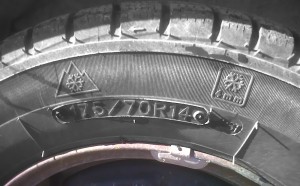Winter tires, are they necessary?

The title of this article may seem a bit redundant, of course winter tires are the best tire for winter driving. However, there are many who do not choose to run winter tires on their vehicles despite living in a climate where winter can last a solid six months.
Driving in the winter can be just as safe as driving in the summer provided a person takes proper precautions. First of all, the only thing between you and the road are your tires. Quality tires can be the difference between stopping just before the object (or person) in front of you and a collision. While there are some all-weather tires that offer good traction, the best choice is a designated winter tire. One only has to do a quick online search to find test after test that demonstrates the superiority of winter tires in winter conditions.

Installing the tires should be done when the temperature falls below an average of 7°C. If you have the tires mounted and balanced installing them yourself is really quite straightforward. Steel rims can be purchased at a fairly reasonable price. Tire shops can be busy as the winter season approaches and getting an appointment can be tough. At the local Costco customers were arriving at 4:30am to line up for the morning first come first served appointments. Their scheduled afternoon appointments were being booked well into December and this was at the beginning of November.
Once you have the tires installed it is essential to have them inflated to the proper air pressure. If you are not sure of the proper pressure a quick look at the sticker on the inside of the driver’s door should solve that mystery. This amount can vary from vehicle to vehicle. My 2014 Nissan Altima requires 33PSI while my 2014 Dodge Grand Caravan requires 36PSI. Fluctuating temperatures can affect the pressure. Keep an eye on your tires and learn how to use a tire gauge. A person can also purchase a small air compressor which will plug into your vehicle’s power outlet (cigarette lighter). These are usually handy to inflate summer beach toys and various balls. Improperly inflated tires can lead to poor handling problems, irregular wear on the tires, and poor fuel mileage.
Monitoring the pressure of your winter tires will help to ensure you and your vehicle will experience safe winter travel.
